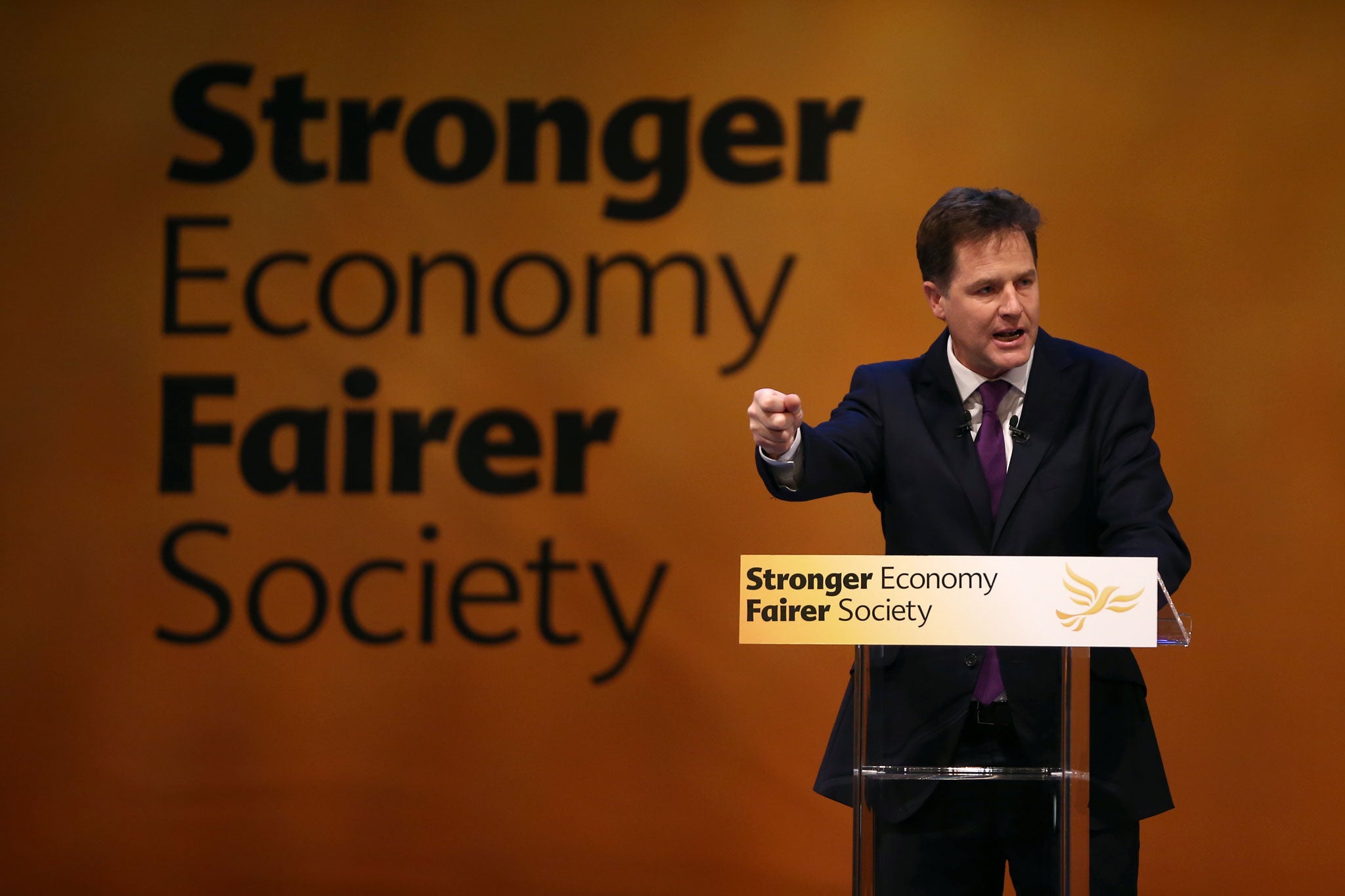Optimism and gloom were balanced equally in this thoroughly odd gathering of the Lib Dems' disparate elements
Vince Cable is new to politics and has not handled well the role of dissenting leader-in-waiting


I have attended every Liberal Democrat conference since the party’s formation. This one was the oddest.
On one level the gathering was a triumph for Nick Clegg. He is not only secure in his position as leader, but has also acquired an authority over his traditionally assertive party. On the whole the party does what he wants it to do. He is an authoritative media performer and quite a lot of the media approves of him.
In addition, today’s speech shows he has a clear electoral strategy, perhaps the clearest of all three party leaders. In effect Clegg put the case for coalition government with the Liberal Democrats acting as a moderating influence on either of the other two.
There was, though, another side to the conference, one that ran counter to the sunny optimism, as if night and day were happening simultaneously. At one fringe meeting the pollster Bob Worcester pointed out that data suggested the Lib Dems were on course to win only 17 seats at the next election. Worcester added that he predicted the party would return 24 MPs, a very big drop compared with the size of their current parliamentary party. While the other two parties dare to hope that they might have more MPs after the election, the Liberal Democrats discuss how many they might lose.
What was interesting about the Worcester meeting was the reaction of some Liberal Democrats in the room. The gathering was chaired by the mild-mannered Archy Kirkwood, now in the House of Lords. On hearing the forecasts, Kirkwood asked the audience with uncharacteristic vehemence what they felt about such a prospect. Another panellist, Sir Ming Campbell, asked Worcester with a degree of concern whether the party’s win in the Eastleigh by-election should give them cause for more optimism. Worcester made clear it should not. Kirkwood and Campbell looked more concerned.
It is a simplistic cliché to say the divide in Clegg’s party is between those who originated from the SDP and those who came from the old Liberal party. There is a third group, senior figures largely from the Liberal party who are depressed about the Con/Lib coalition and the degree to which Clegg seems comfortable with some of its contentious policies. They include the former leaders David Steel and Sir Ming Campbell, as well as Kirkwood and the former SDP leader, Robert Maclennan.
There was also another dual narrative at the conference. On one level Vince Cable had a bad conference. The largely right-wing media gleefully reported what it perceives to be his downfall. Some of Clegg’s allies took considerable pleasure in the reports. Cable is not artful. Although in his late 60s, he is relatively new to politics and has not handled well the difficult role of dissenting leader-in-waiting. But then there is the other side to the story.
On the substance of the policy issues, Cable may well prove to be right. When I interviewed him at The Independent’s fringe meeting, he forensically explained the dangers of another recovery based on a property boom largely confined to the South-east and reflected more widely on the curious pattern of leaders repeating the economic mistakes of the past, somehow convincing themselves that this time it will be different. I would not write Cable off because his latest attempt at political positioning misfired.
The contradictory moods of the conference were reflected in Clegg’s speech today, an address that managed to be simultaneously substantial and thin. In terms of substance, Clegg gave a convincingly detailed outline of his election pitch. “The recovery wouldn’t be happening without us,” he claimed. In terms of the other two parties, he had a line with considerable populist potential in the anti-politics era: “Left to their own devices they’ll both get it wrong.”
For the first time since the 2010 election he focused at length on the Conservatives, outlining some of the right-wing policies the Liberal Democrats stopped from happening. This was a powerful passage partly because of its novelty. As he said in a candid aside: “I haven’t said enough about this.” His critique of Labour was powerful too. Clegg attacked the leadership for seeking tactical victories at the expense of long-term reform, in particular in relation to constitutional change.
But within the speech there was also another story, exemplified by Clegg’s trite explanation as to how he came into politics. He gave a rather simplistic account of how he saw politics in the 1970s and 1980s. In essence he wondered why everyone was being nasty to one another. He went on to explain that Paddy Ashdown subsequently met him in his office in Strasbourg and Clegg was so impressed he became a Liberal Democrat.
If this was really the rootless, insubstantial sequence that marked the start of an extraordinary political career perhaps it was better left unsaid. What was left unsaid is the number of radical Tory policies that have got through the coalition process, a cause of concern for senior party members who perhaps entered politics for more rooted reasons.
They all left in the Glasgow twilight, some looking forward to the next sunny day and others getting ready for the dark.
Join our commenting forum
Join thought-provoking conversations, follow other Independent readers and see their replies
Comments
Bookmark popover
Removed from bookmarks